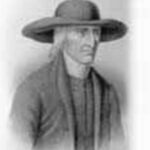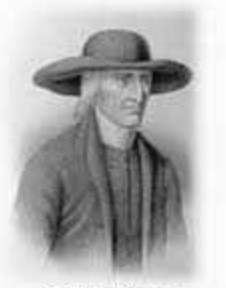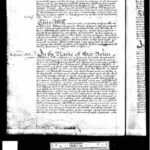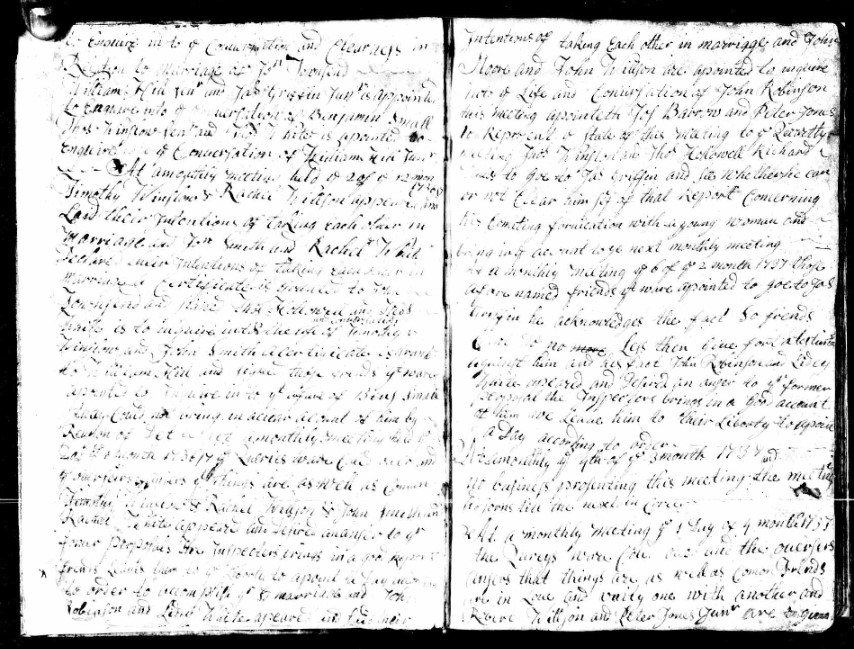William Thomas Hill
Date of Birth
July 24, 1675
Place of Birth
Boston, Suffolk, Massachusetts
Towns / Cities Moved Into
Nansemond County, Virginia | Chowan, North Carolina
Known Occupation
-
Religion
-
Spouse
Death Information
Year of death
January 10, 1749
Place of death
Chowan, North Carolina
Cause of death
-
Obituary

Parents

James Hill

Hannah Hinchman
Marital Status


Married Mary Ann Spivey
June 1701
Chowan, North Carolina.
Siblings




Children









Narrative / Story
William Thomas Hill’s life, beginning on July 24, 1675, in Boston, Massachusetts, unfolds a captivating tale of an early American colonial family. Born to James Hill and Hannah Hinchman, William grew up in a period brimming with the promise and challenges of the New World. His early years in Boston were just the beginning of a journey that would take him through various landscapes of colonial America.
In search of new opportunities, William ventured from Massachusetts to Virginia’s Nansemond County and eventually settled in Chowan, North Carolina. This migration was emblematic of the era’s spirit, as families like the Hills sought prosperity and stability in the vast expanses of America. In June 1701, William’s life took a significant turn when he married Mary Ann Spivey in Chowan. This union not only brought love but also intertwined the Hill family with other notable families in the region, through Mary Ann’s parents, Thomas B. Spivey and Mary Jane Jones.
Together, William and Mary Ann nurtured a large family, with children Moses, Aaron Sr., William II, Susannah, Rachael, Mary, Ruth, Leah, and Sarah Hill enriching their lives. Their home was more than a family residence; it was a hub of activity and growth, reflective of the era’s familial structures.
Life in colonial America was not without its trials and tribulations. As a landowner, William engaged in the typical agricultural practices of the time, likely focusing on crops like tobacco and cotton, which were central to the colonial economy. The family’s proximity to waterways was not just a geographical feature but a vital aspect of their livelihood, facilitating trade and commerce.
William’s life was also marked by significant historical events that shaped the colonial experience. The Tuscarora War from 1711 to 1715 highlighted the tensions and conflicts of the era. In 1729, the transformation of North Carolina into a royal colony marked a significant political shift, impacting the lives of colonists like William and his family.
Religion played a crucial role in the Hill family’s life. Their settlement in an area influenced by Quakers, following George Fox’s missionary work, suggests a possible alignment or interaction with Quaker beliefs and practices. This religious affiliation, in a time of diverse and often conflicting religious beliefs in the colonies, would have significantly influenced their social and community life.
William’s journey came to an end on January 10, 1749, in Chowan, North Carolina. His will, a document that encapsulates his life’s achievements and values, was a testament to the legacy he left for his wife, children, and grandchildren. His burial place, though not explicitly recorded, remains a part of his enduring legacy.
William Thomas Hill’s story is not just a family narrative; it’s a vibrant chapter in the early American colonial history tapestry. His life, interwoven with personal achievements, family bonds, and the broader socio-economic and political contexts of his time, offers a unique perspective on the complexities and dynamics of life in a burgeoning new world. His genealogy is a testament to the resilience and adaptability of early American colonists, navigating through an era of profound transformation and opportunity.


